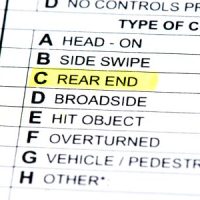Why Are Police Accident Reports Inadmissible In Your Injury Trial?

After a car accident, it is common for your attorney to get the police report. The police report is generated by the police based on their investigation at the scene of a car accident.
To many victims, when the police find the other driver to be at fault, that is a guaranteed win. After all, police are trustworthy, they were at the scene, and when a police officer says that you were not at fault, but the other driver was, that should be very compelling evidence that you did nothing wrong and the other driver did.
That all may be true. But there is one problem: the report that the police officer generated, which says that you are not at fault cannot be used as evidence in your trial. The jury will likely never see that police report.
Hearsay in the Report
This may seem counterintuitive, but there is good policy behind it.
One reason why police officers’ accident reports cannot be used in trial is that they are based on hearsay—the officer is writing things based on what other people at the scene of the accident told him or her. That is classic, inadmissible hearsay.
Very Prejudicial
The other reason the report is inadmissible is that the law knows that police officers’ words and testimony carry great weight and credibility with people (specifically in your case, the jury). In fact, the police officer’s words and conclusions on the police report almost carry too much weight.
The law knows that jurors may just see a police report, and side with that, ignoring all other evidence. Not only that, but the police officer’s conclusions are only based on a cursory investigation at the scene of the accident; the officer is not doing depositions or engaging in scientific accident reconstruction. Based on a relatively quick interview and viewing the scene, the officer is coming to a conclusion, and one that most juries will be inclined to take as fact.
Neutrality When Doing the Report
The law also wants officers to conduct their investigations without concern about any later lawsuit or trial. The law doesn’t want police thinking how their police report will do or look before a judge or jury, or to have the officer’s judgment clouded by the potential of a future lawsuit.
Other Ways of Using the Incident Report
Even though the report is inadmissible, the officer can still testify in trial if the officer actually remembers your accident. Additionally, information on the police report can be helpful to your case—it can help jog the police officer’s memory, or help your experts determine what happened. It may have the names and identities of important witnesses. And certainly, the insurance company on the other side may take it into account when making settlement offers to you.
We can help you anticipate what to expect in your car accident case. Call the West Palm Beach personal injury attorneys at Pike & Lustig today.
Source:
leg.state.fl.us/Statutes/index.cfm?App_mode=Display_Statute&URL=0300-0399/0316/Sections/0316.066.html
